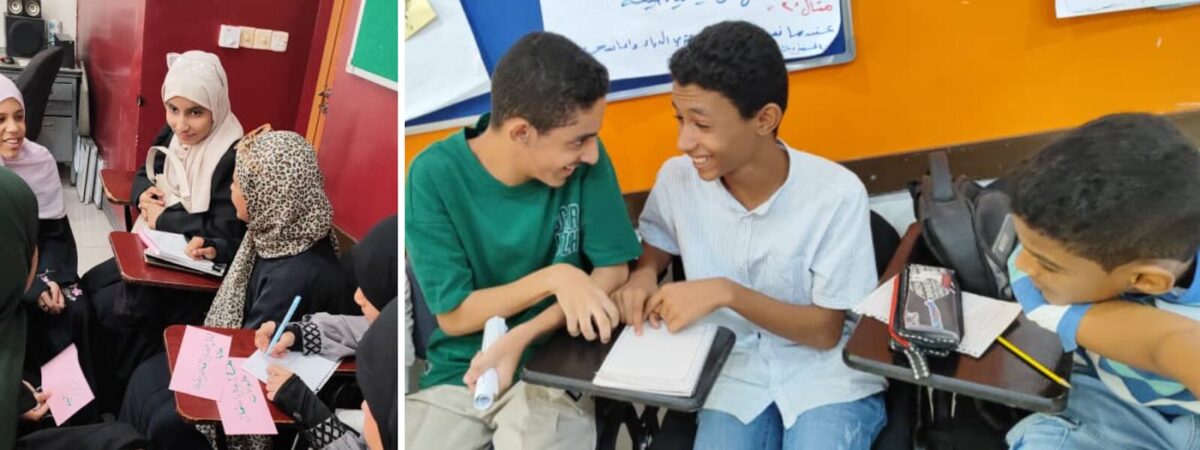
Poverty has severely affected many displaced families, making it difficult for them to enroll all their children in school. The destruction of numerous school buildings has led to overcrowded classrooms, staff shortages, and poorly equipped learning environments. Students and teachers alike are desperate for a change in the education system.
School authorities, lacking sufficient funds, are unable to provide the necessary resources for effective learning. The government struggles to meet basic public needs, leaving education largely ignored. As a result, parents often find it challenging to afford registration and exam fees, as well as food and school supplies. In times of financial scarcity, families tend to prioritize the education of boys, believing they are more likely to become future breadwinners.
Recognizing the urgency of this situation, our students have been taking action to design innovative solutions to ensure that all children have access to quality education and the opportunity to build a better future.
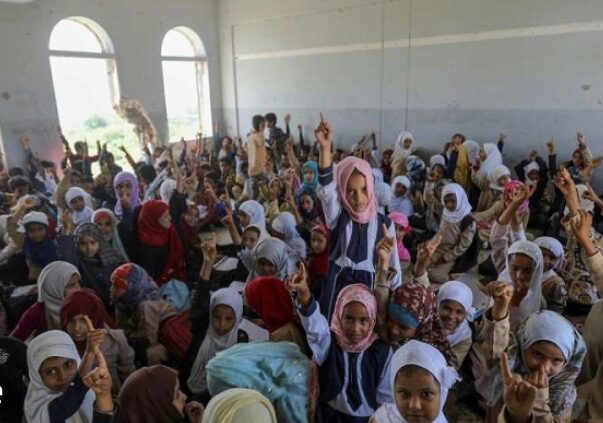
Overcrowded classroom with no basic facilities.
To begin, students sought to understand the challenges that youth face in continuing their education. They asked several students to answer a survey on whether their families consider education to be important. The results showed that many families consider educating their children to be a luxury they cannot afford. This harsh reality persists in a country still grappling with the aftermath of war and is a mentality students sought to change.
Hosted in July 2025 at Amideast, the summer camp focused on STEM training and fundamental 21st-century skills, underscoring the importance of access to education. Sabrina Faber, Director of Amideast Yemen, along with dedicated educators have consistently advocated for educational opportunities for Yemeni students and provided a great opportunity for the change.
During the summer camp, students engaged in 80 hours of project-based learning, applying math, science, and English through STEM-focused activities. In the process, they gained practical experience while developing essential skills in communication, creativity, problem-solving, and critical thinking. Their motivation to contribute to meaningful change was palpable.
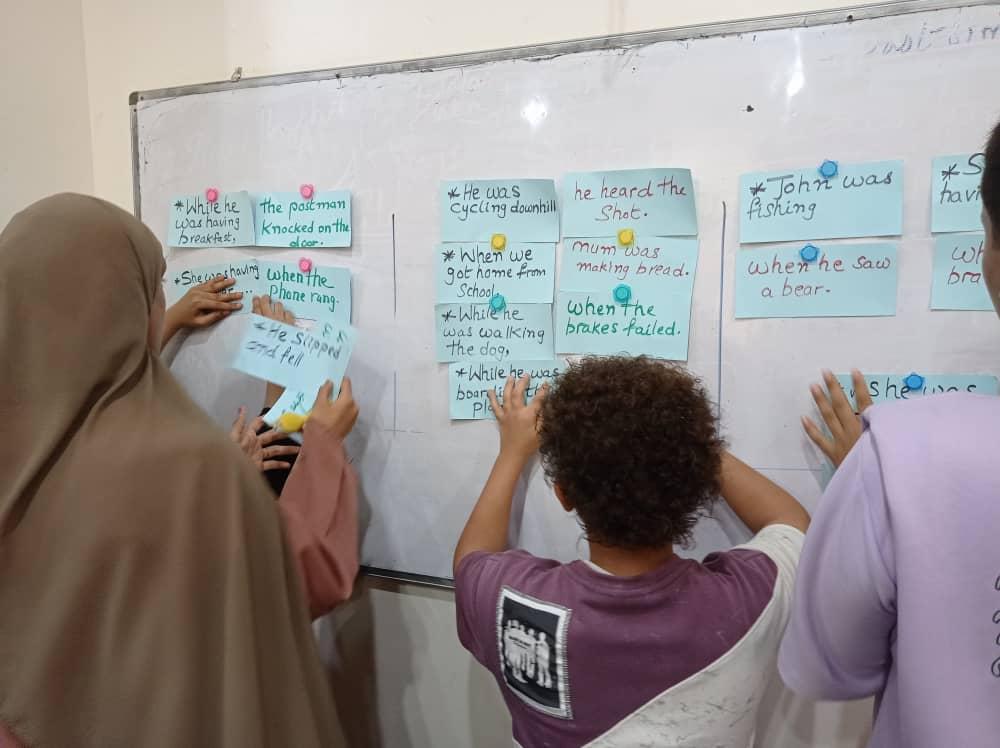
Student-centered classes
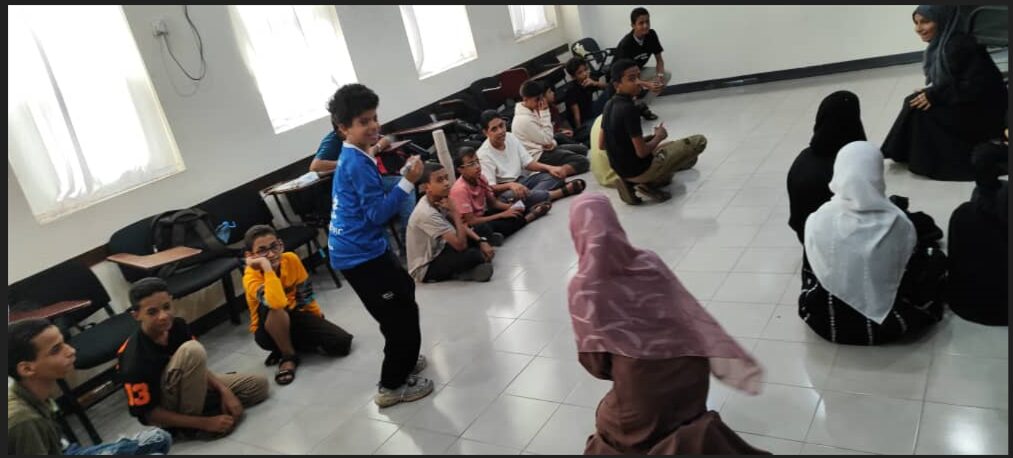
Team-building activities
”The students started changing.. We noticed by the end of the second week they were coming up with many projects, which were very creative, and they learned to work as a team because there was no more competition for grades. Everyone wanted to help the other person to accomplish the project instead of looking for grades. This helped them to understand the importance of collaborative work.”
The program also exposed students to new methodologies and digital skills, including training in Excel, PowerPoint, and AI for research purposes. At the conclusion of the training, students showcased their accomplishments in an exhibition attended by parents and classmates, celebrating their progress and dedication. It was a rewarding experience to see proud parents attentively listening to the students’ exhibit presentations.
Listen to Nisha describe memorable moments from the student presentations.
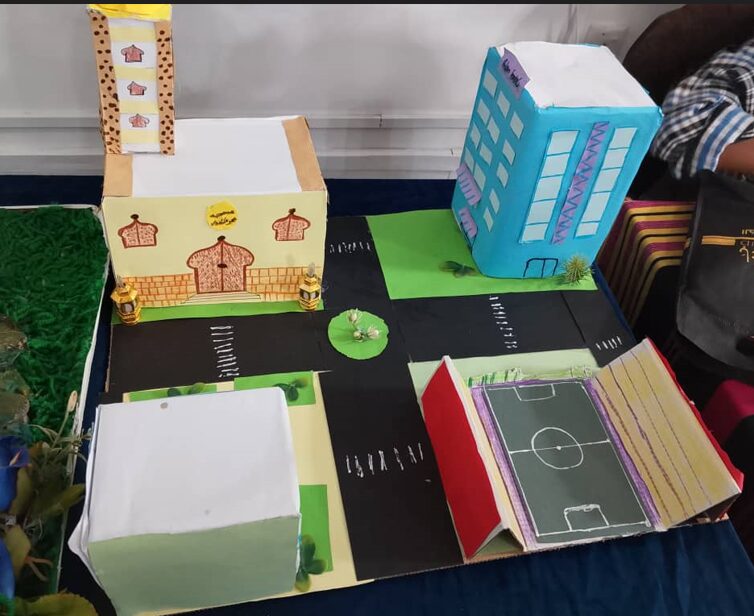
Students displaying their science and art projects.
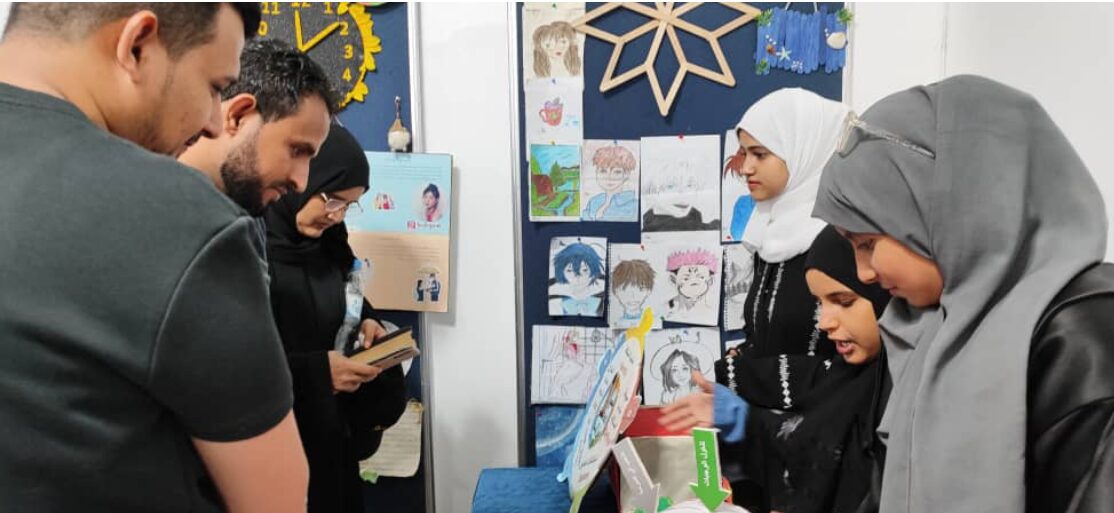
Students displaying their science and art projects.
One of the students, Mayar Ali, reflected, “If all the students in Yemen have this opportunity to get educated this way, we will be a prosperous country. I hope our journey doesn’t end here.” This is every educator’s dream—to inspire a love for education in our youth.
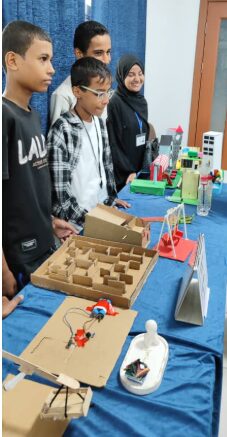
Students displaying their science and art projects.